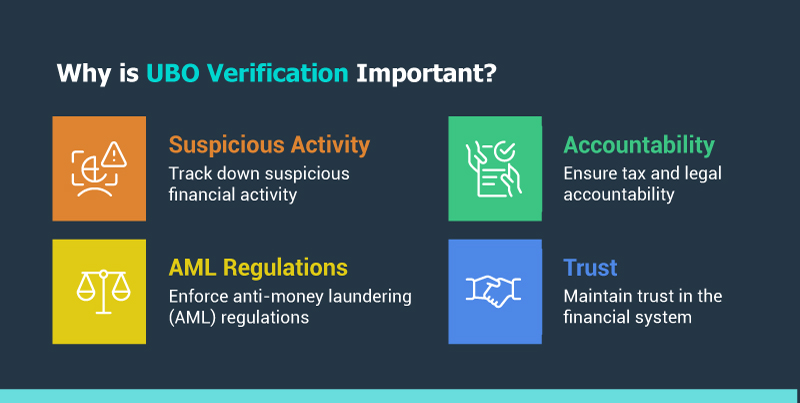Did you know that, according to the United Nations Office on Drugs and Crime, between 2–5% of global GDP, roughly $800 billion to $2 trillion, is laundered every year?
One of the biggest reasons this continues to happen is the misuse of anonymous corporate structures. In many cases, the people behind a company remain hidden, making it difficult for authorities and regulators to track illegal financial activity. That is exactly why the concept of the Ultimate Beneficial Owner (UBO) has become so important.
In simple terms, UBO verification is about identifying the real person who ultimately owns or controls a business. It is a global requirement tied closely to AML (Anti-Money Laundering) efforts, tax transparency, and financial integrity.
As we look into the definition, key requirements, international standards, and best practices for verifying your UBO in this blog, ‘Ultimate Beneficial Owner (UBO) Verification: The Complete Guide’, you can stay compliant, avoid penalties, and build lasting trust in your business operations because, understanding UBO regulations and complying with reporting obligations has now become nothing less than essential.
Table of Contents
What is an Ultimate Beneficial Owner (UBO)?
To put it in simple words, a UBO (Ultimate Beneficial Owner) is the individual who truly owns or has control over a company, either directly or through other means. They might not always appear on official documents or company profiles. Sometimes, their ownership is hidden behind layers of entities or legal arrangements. But if someone holds 25% or more of the shares or voting rights, or has significant influence over decisions, that is typically who we are talking about. So, identifying the UBO helps to make sure that businesses aren’t being misused for things like fraud, money laundering, or tax evasion.
Also Read: UAE Announces Tax Update 2025: Key Changes Businesses Must Know
Why is UBO Verification Important?

When ownership isn’t transparent, it is easy for illegal activity to slip through the cracks. That is why UBO verification matters so much.
Authorities, banks, and regulators rely on UBO details to:
- Track down suspicious financial activity
- Enforce anti-money laundering (AML) regulations
- Ensure tax and legal accountability
- Maintain trust in the financial system
For businesses, UBO compliance also builds credibility. It shows that you are operating cleanly and transparently.
Also Read: How to Claim a VAT Refund in the UAE: Step-by-Step Guide 2025
Global Context: UBO International Standards
UBO verification is part of a global move to make business ownership more transparent. Several international bodies have set the tone for UBO transparency, and here are a few you should know about:
1. FATF Recommendations
The Financial Action Task Force (FATF) is an international organization that sets global rules to help prevent financial crimes. One of its key recommendations, which is Recommendation 24, asks countries to make sure they have up-to-date and accurate UBO data that can be shared with competent authorities when needed.
Also Read: What Are the Different Types of Audit Reports?
2. EU AML Directives
The European Union has taken strong steps too. The 5th and 6th Anti-Money Laundering Directives (AMLD) push for clear rules around beneficial ownership, including the creation of public UBO registers.
Also Read: How To Choose The Best Audit Firms in Dubai – UAE
3. OECD Guidelines
The OECD has also emphasized transparency, especially in relation to tax compliance. Their guidelines support UBO reporting to help combat things like base erosion and profit shifting.
So, if your company operates internationally, or even just deals with international clients, you’ll need to align with these frameworks.
Also Read: Documents Required for VAT Registration UAE
UBO Regulations in the UAE: What You Should Know
The UAE has made significant updates to its regulatory framework on Ultimate Beneficial Ownership (UBO) to improve corporate transparency and align with global compliance standards. The most recent and currently applicable regulation is Cabinet Decision No. (109) of 2023, which replaces the earlier Cabinet Decision No. (58) of 2020.
This updated resolution places a stronger emphasis on accurate disclosure, data maintenance, and clear identification of the real individuals who ultimately control or benefit from a business.
Also Read: The Three Golden Rules of Accounting
Key Requirements Under Cabinet Decision No. (109) of 2023
Under this resolution, all relevant companies in the UAE are required to:
- Keep a record of the beneficial owners with complete and accurate information.
- Keep the register updated, and any changes must be reflected promptly.
- File this information with the Registrar, who is responsible for maintaining a centralized UBO database.
The objective is to provide consistent and reliable access to beneficial ownership data, which supports anti-money laundering efforts and helps authorities detect misuse of legal entities.
Also Read: Business Setup in Dubai: The Ultimate Guide to Company Formation in UAE
Who Needs to Comply?
Most companies that are registered in the UAE need to follow the UBO rules. The major among them are:
- Mainland companies that are registered under the Department of Economic Development (DED)
- Free zone entities, including those operating under free zone authorities such as IFZA, DMCC, JAFZA, etc.
- Limited Liability Companies (LLCs)
- Private and Public Joint Stock Companies
- Branches of foreign companies
Also Read: How to Find TRN Number and Perform TRN Verification in UAE?
Who Is Exempt?
Certain entities are exempt from these regulations, such as:
Companies wholly owned by federal or local government bodies
Entities incorporated in financial free zones, such as:
Dubai International Financial Centre (DIFC)
Abu Dhabi Global Market (ADGM)
These zones follow their own independent regulatory frameworks and disclosure systems.
Also Read: What is ICV Certificate in Dubai-UAE and How to Get It?
What Information Is Required for UBO Verification in the UAE?
The key information and the needed documents are:
- Valid identification: Obtain a government-issued identity document such as:
– Emirates ID
-Valid passport
-UAE driving license
-Any other official government ID
- Shareholding details: Clearly identify the share percentage or control structure that qualifies the individual as a UBO (e.g., direct ownership, indirect ownership, or control by other means).
- Screening and background checks: Conduct mandatory screening to determine whether the individual:
- Is listed on any international or local sanctions lists
- Is a Politically Exposed Person (PEP) or involved in high-risk financial activities
- Supporting documents: Depending on the ownership structure, you may also need to submit corporate documents or agreements that demonstrate how the UBO holds control or ownership.
Note: If there is any change in UBO details such as ownership structure, identity, control, or more, it must be updated with the Registrar within 15 days of the change.
Also Read: How to Register for Corporate Tax in UAE Using Emaratax
How Do You Determine Who the UBO Is?
Identifying the UBO can be tough when there are multiple layers of ownership involved. But here is a simplified brief:
Start with Direct Ownership
If a person directly holds 25% or more of the company’s shares, they are considered the UBO.
Consider Indirect Control
If the ownership is through another company, trust, or legal arrangement, and the person still ends up with 25% or more, they also count as the UBO.
Control by Other Means
If no one meets the 25% rule, look for someone who has significant control, maybe through decision-making powers or contractual rights.
Fallback Option
If you still can’t identify a UBO, then the person holding the highest management position (like a CEO or Managing Director) is considered the UBO.
Also Read: Top 10 Best Accounting Software UAE – Dubai
UBO and AML Compliance: How They Are Connected?
UBO verification is an important part of making sure a business follows anti-money laundering (AML) rules. It is part of the broader Know Your Customer (KYC) process, which financial institutions and regulated entities must follow.
By identifying UBOs, businesses can:
- Better assess the risk of money laundering or financial crime
- Avoid doing business with shell companies or blacklisted individuals
- Ensure they meet international reporting obligations
For banks and financial services, UBO checks are a regulatory requirement during onboarding and continuous monitoring.
Also Read: MIS Report: Definition, Importance, Types, and Examples
Consequences of Non-Compliance
If a company fails to meet the requirements, the penalties can include:
- Fines
- Business license suspension or restrictions
- Reputational damage
- Increased regulatory scrutiny
The authorities in the UAE are actively checking for compliance, and random inspections are not that uncommon.
UBO in Free Zones vs. Mainland: What’s Different?
Even though the basic rules are the same, the steps and timelines for UBO registration may differ between mainland and free zone areas. Each free zone authority (e.g., IFZA, DMCC, DAFZA) may have specific compliance procedures and platforms for submitting UBO data. So, businesses operating in multiple jurisdictions must have consistency and compliance across all licensing authorities.
Also Read: How to Get an Audit License in UAE
Common Challenges in UBO Verification
Here are a few challenges many companies run into:
- Complex ownership structures that span multiple countries
- Reluctance from stakeholders to disclose personal details
- No central register for beneficial ownership across jurisdictions
- Lack of in-house compliance expertise
If your business deals with any of these, getting help from a professional can save you a lot of time with full compliance.
Best Practices for UBO Compliance
If you want to ensure full compliance, here are a few steps recommended by the experts at Kreston Menon:
- Do regular internal reviews of ownership structures.
- Train your team on local and international UBO rules.
- Use proper documentation and keep records up to date.
- Invest in tools or software for ownership mapping and tracking.
- Consult with experts, especially for group structures or cross-border entities.
Getting ahead of the regulations now can help you avoid bigger issues down the line.
Also Read: Corporate Tax UAE: Everything You Need to Know in 2024
What’s Next for UBO Rules?
UBO regulations are expected to tighten in the coming years, both globally and in the UAE. Authorities are aiming for:
- More automation in reporting
- Greater public access to UBO data
- Enhanced cooperation between jurisdictions
So, if your business hasn’t put a proper UBO process in place yet, wait no longer; now’s a good time to start.
To conclude, identifying and reporting your Ultimate Beneficial Owner (UBO) is important as it meets regulatory requirements, thereby strengthening your company’s reputation and reducing risk. And when integrated properly, ultimate beneficial ownership and AML compliance can work hand-in-hand to protect your business from legal, financial, and operational trouble.

